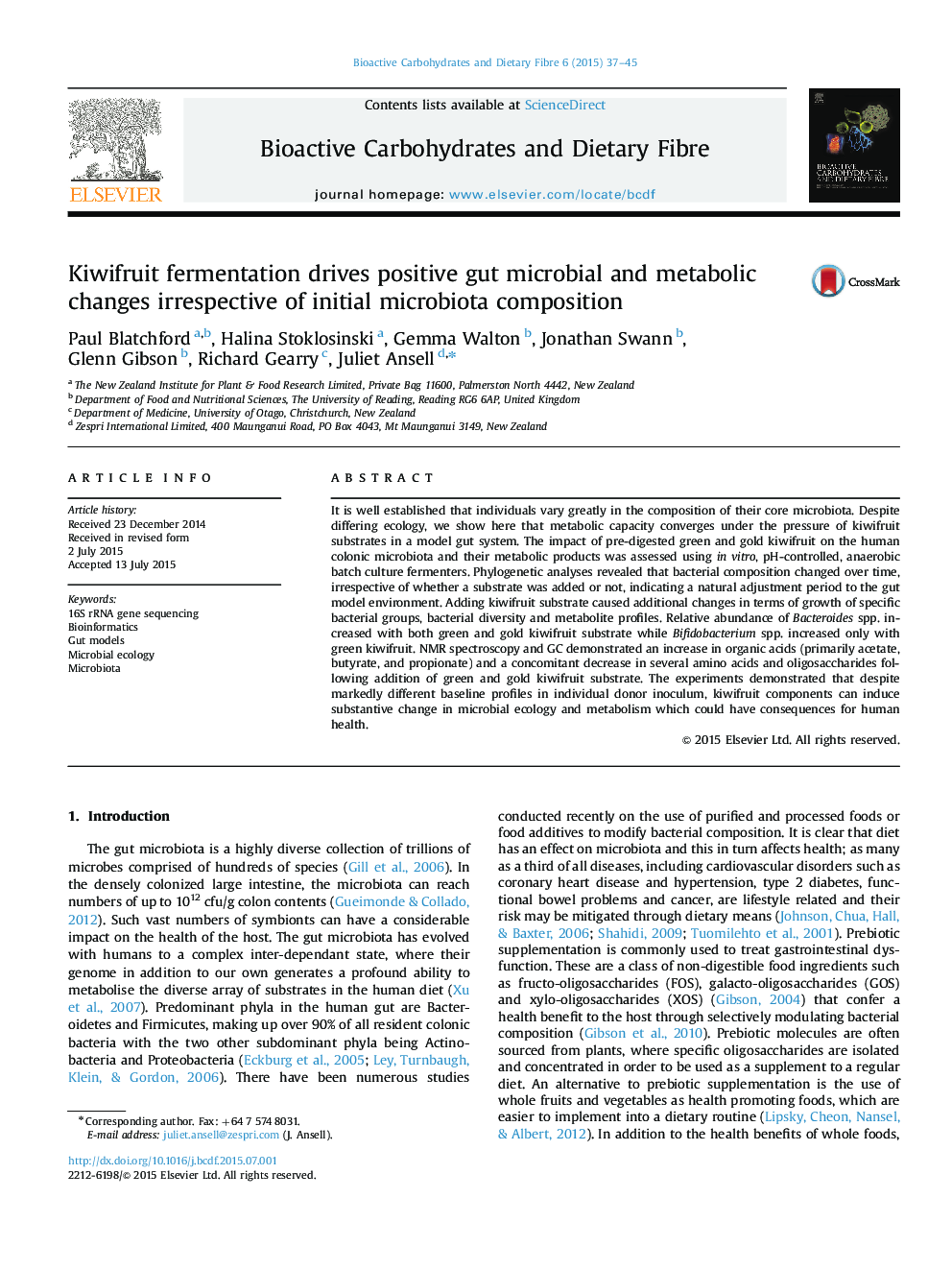| Article ID | Journal | Published Year | Pages | File Type |
|---|---|---|---|---|
| 1413014 | Bioactive Carbohydrates and Dietary Fibre | 2015 | 9 Pages |
It is well established that individuals vary greatly in the composition of their core microbiota. Despite differing ecology, we show here that metabolic capacity converges under the pressure of kiwifruit substrates in a model gut system. The impact of pre-digested green and gold kiwifruit on the human colonic microbiota and their metabolic products was assessed using in vitro, pH-controlled, anaerobic batch culture fermenters. Phylogenetic analyses revealed that bacterial composition changed over time, irrespective of whether a substrate was added or not, indicating a natural adjustment period to the gut model environment. Adding kiwifruit substrate caused additional changes in terms of growth of specific bacterial groups, bacterial diversity and metabolite profiles. Relative abundance of Bacteroides spp. increased with both green and gold kiwifruit substrate while Bifidobacterium spp. increased only with green kiwifruit. NMR spectroscopy and GC demonstrated an increase in organic acids (primarily acetate, butyrate, and propionate) and a concomitant decrease in several amino acids and oligosaccharides following addition of green and gold kiwifruit substrate. The experiments demonstrated that despite markedly different baseline profiles in individual donor inoculum, kiwifruit components can induce substantive change in microbial ecology and metabolism which could have consequences for human health.
Graphical abstractTrajectory of the mean organic acid results of the three fermentations as a two-dimensional discriminant analysis of substrates at each time-point, moving sequentially from 0 h to 5 h to 10 h to 24 h to 48 h.Figure optionsDownload full-size imageDownload as PowerPoint slide
